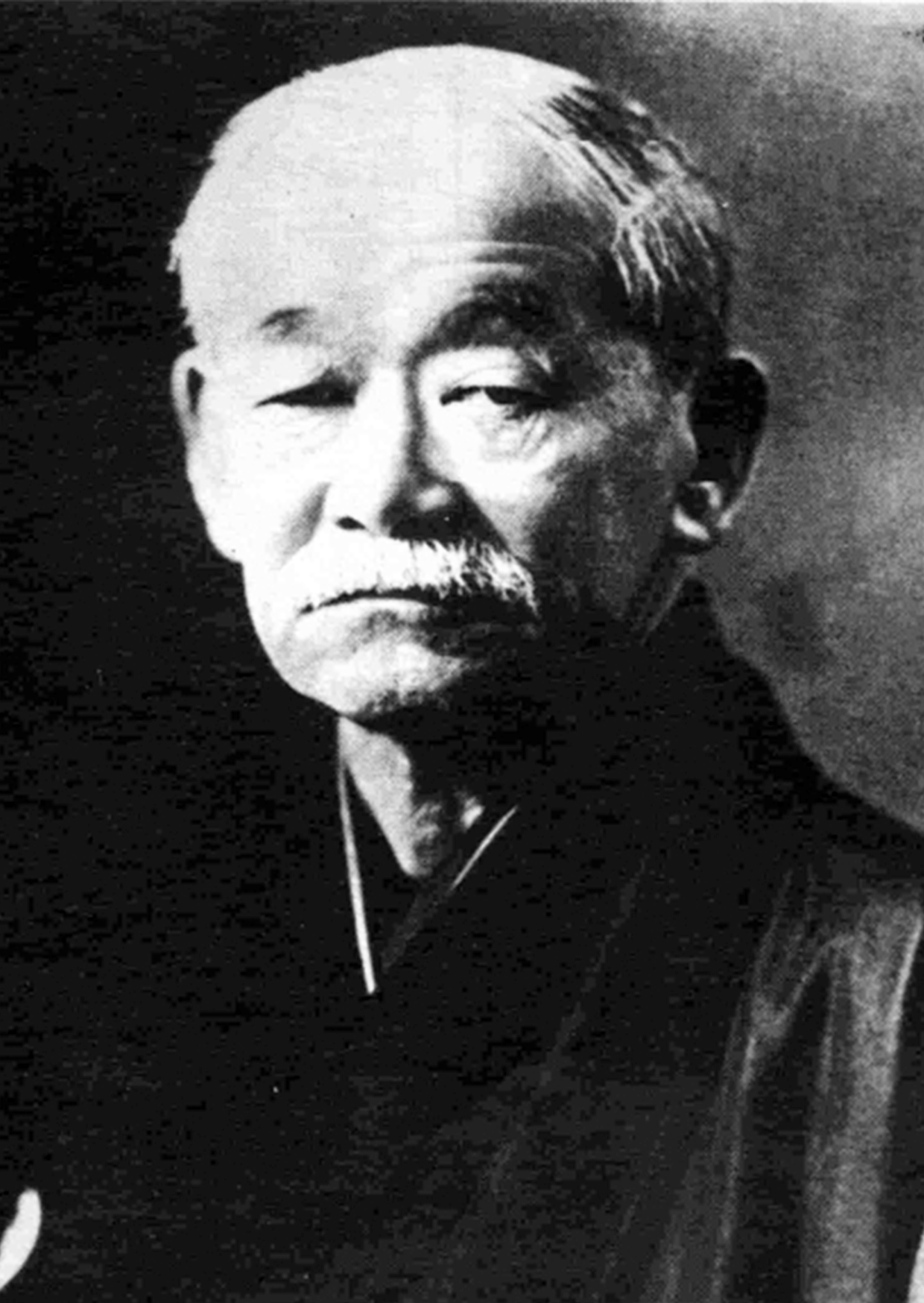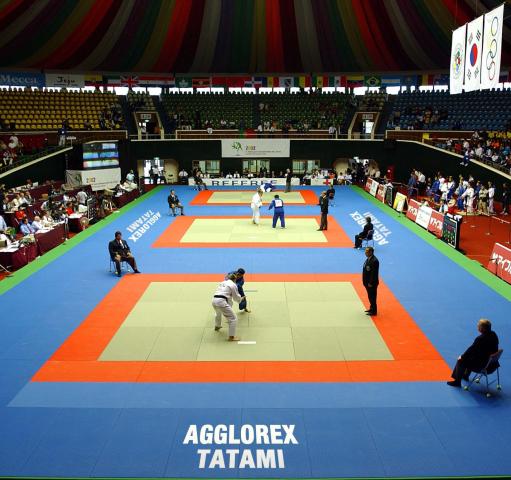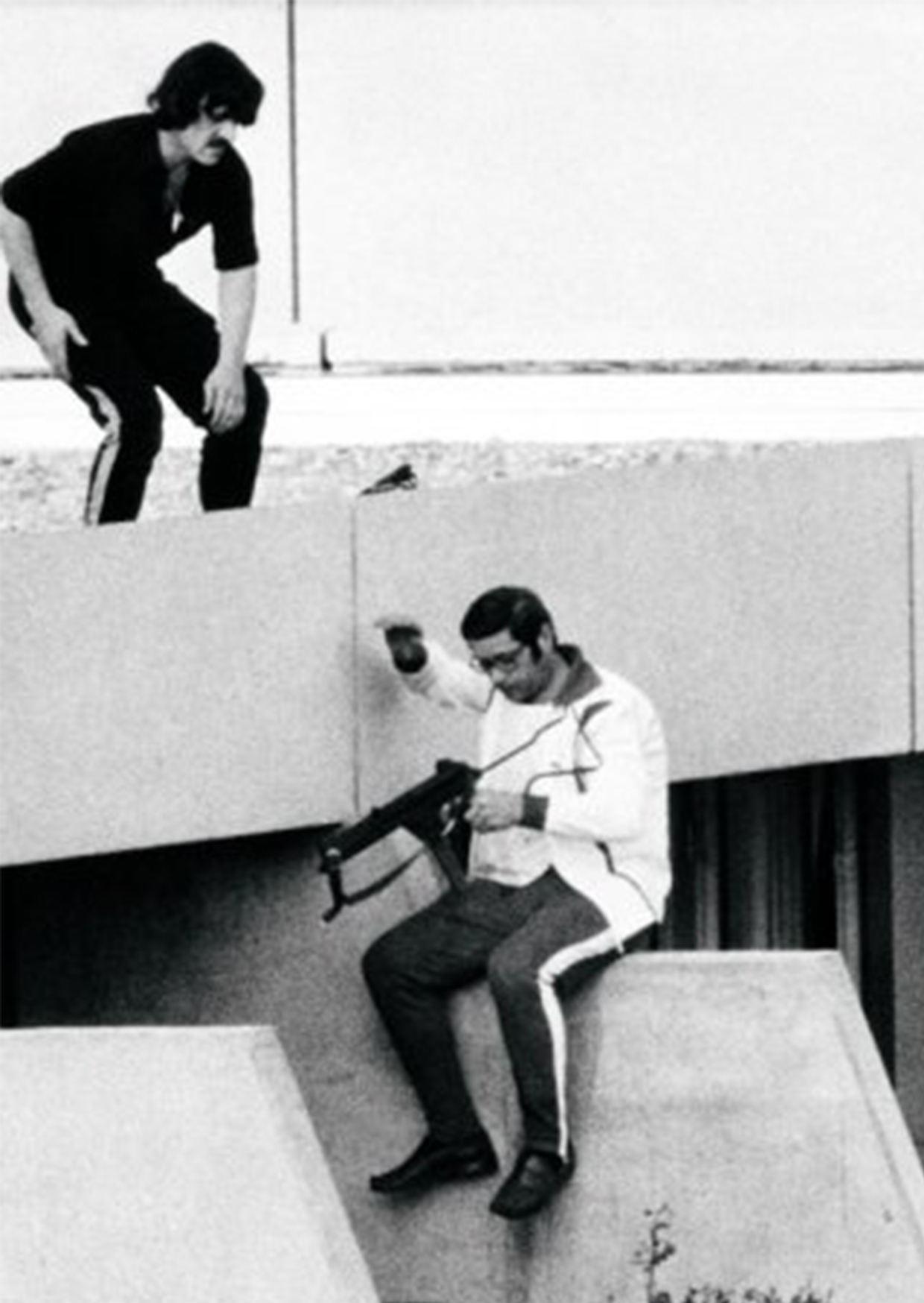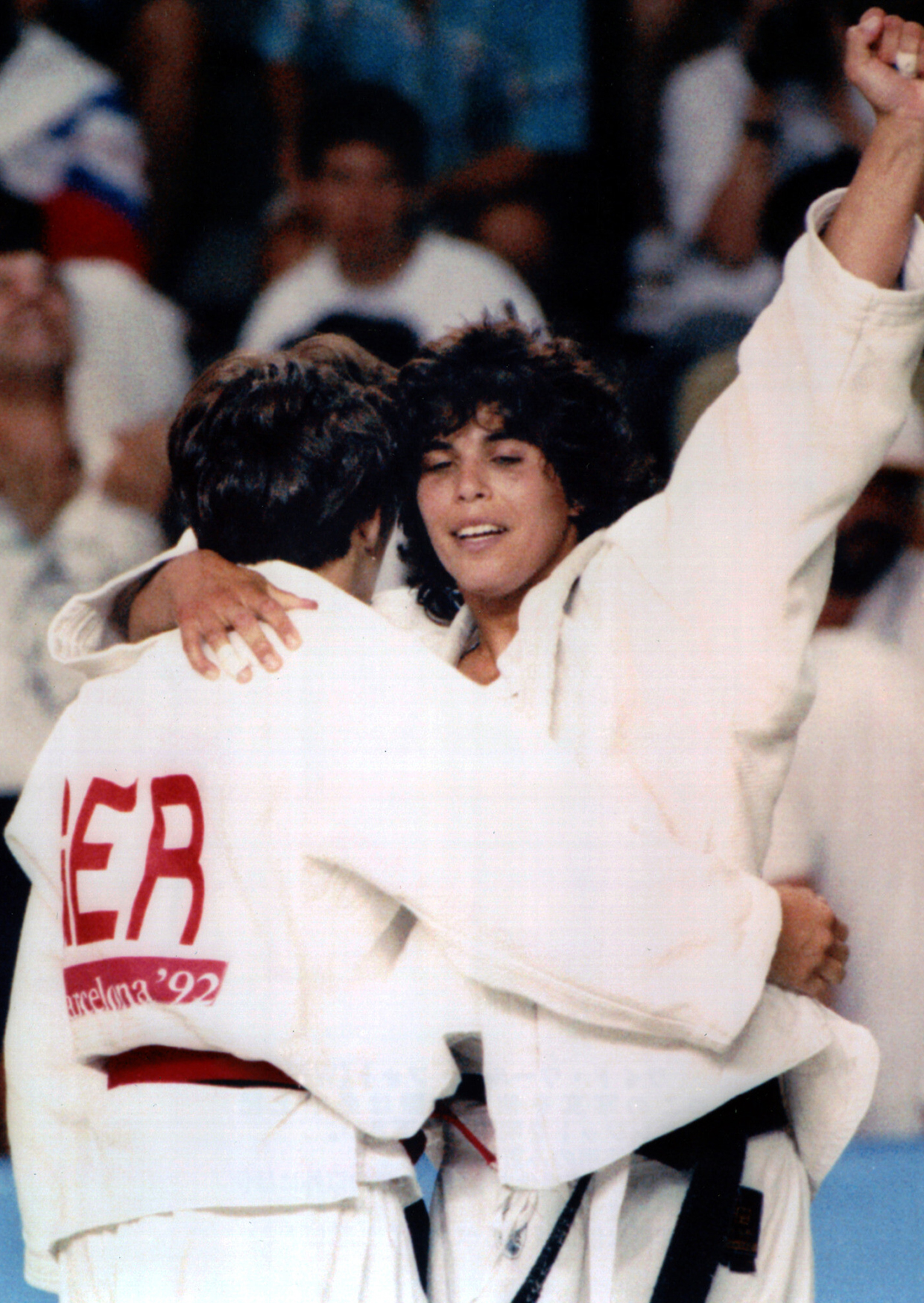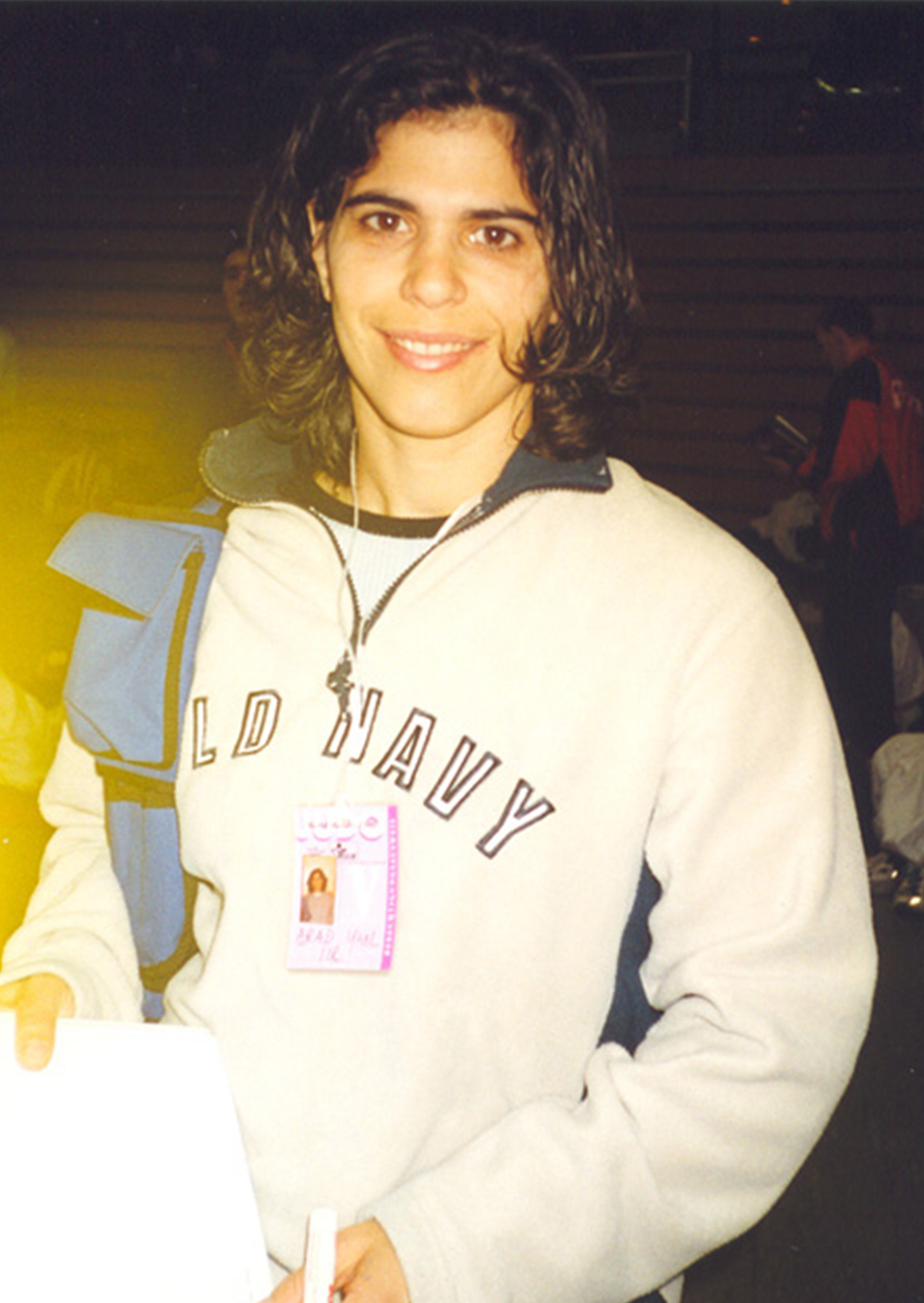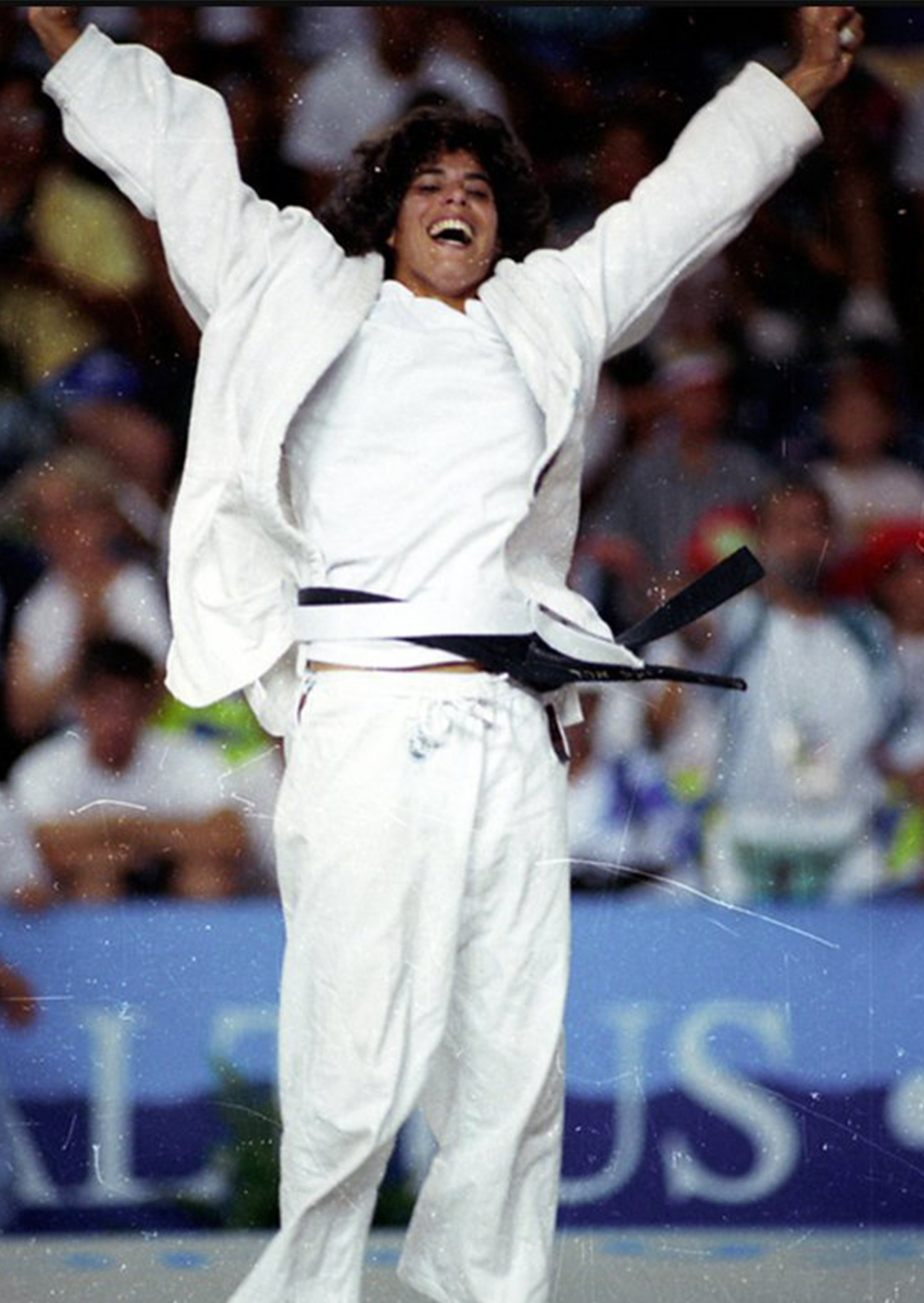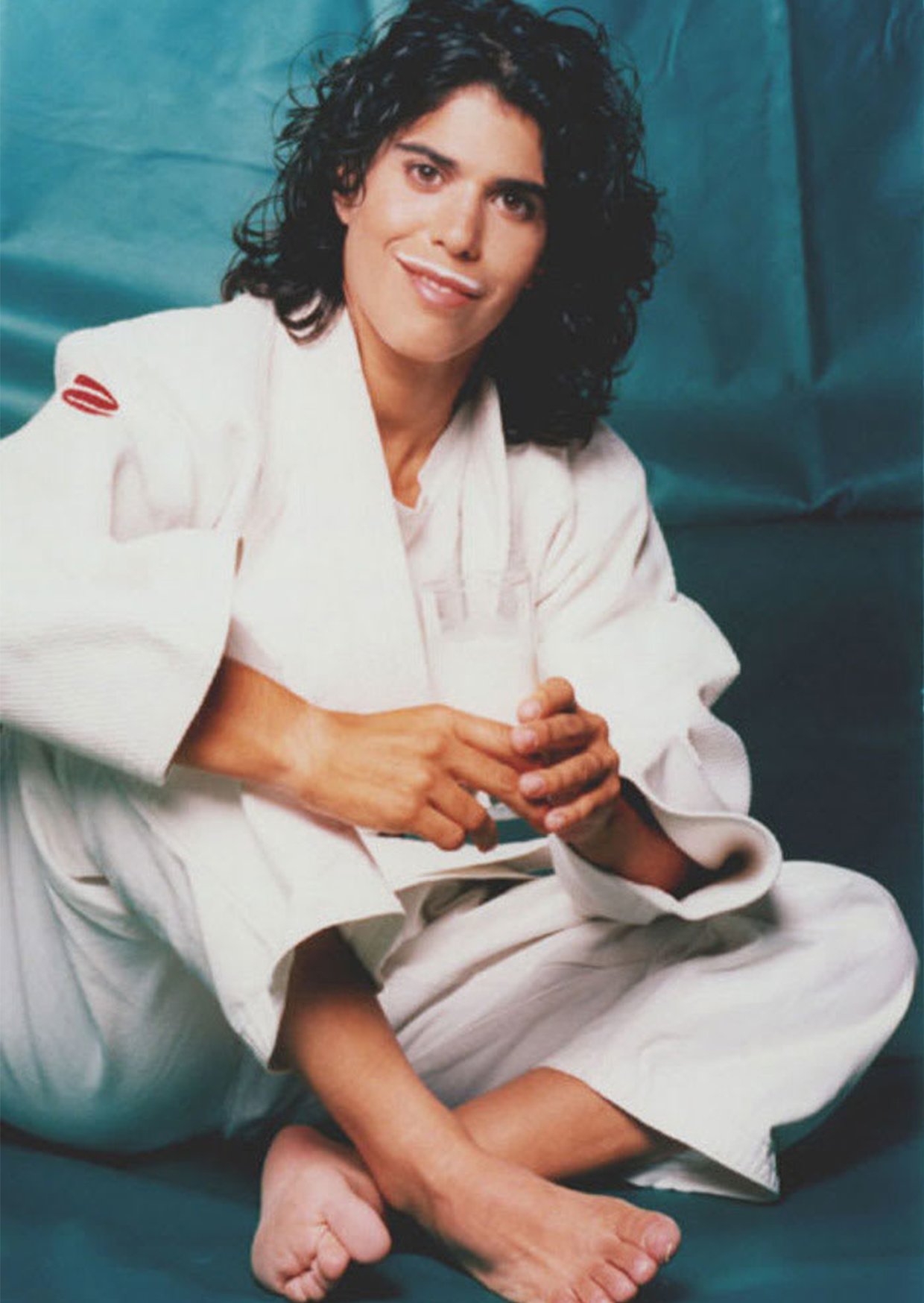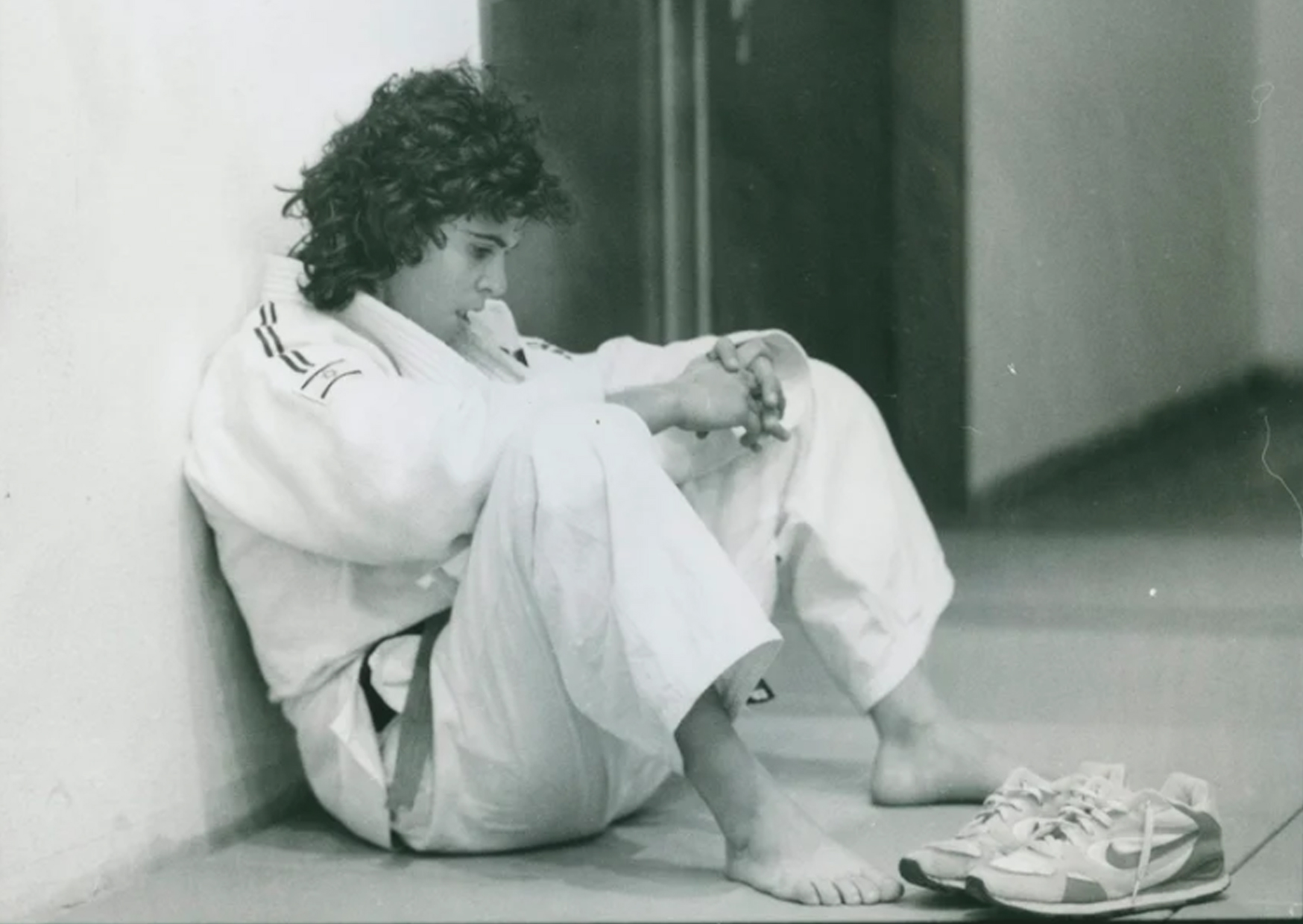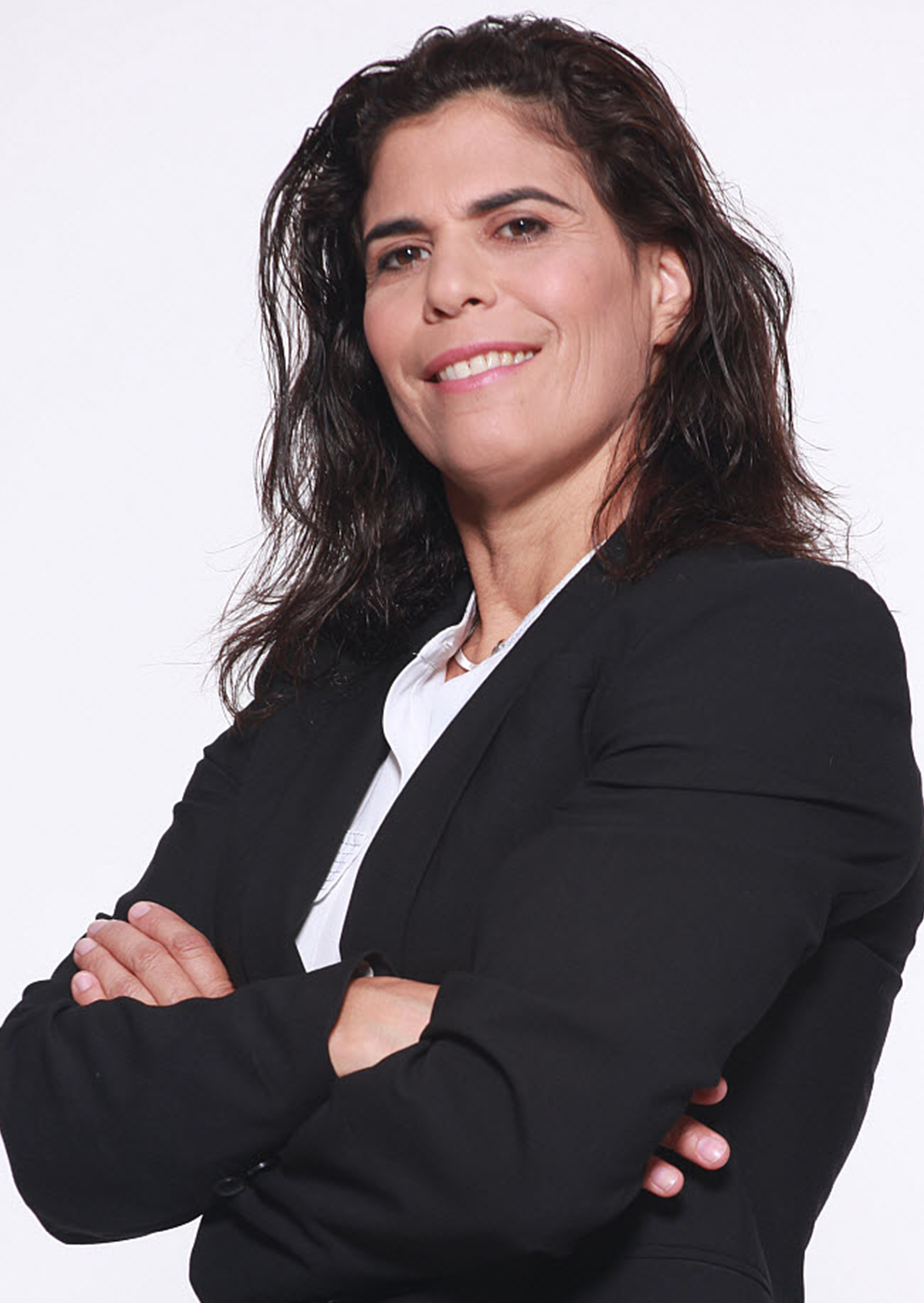1967
She was born on May 1st in Tel Aviv to Aryet and Nurid Arad. Both of her parents are journalists; her father also worked as a radio broadcaster.
1975
Eight-year-old Yael started taking judo lessons at the Maccabi Judo Club in Tel Aviv, as a student of Moni Isaac.
1984
At the age of seventeen she won her first adult title in the 61 kg (middle-weight) category.
1984
She took part in the World Judo Championships in Vienna, where she came in seventh.
1987
She underwent shoulder surgery, which forced her to miss nine months of judo.
1989
At the age of twenty-two, she won the bronze medal at the European Judo Championships in Helsinki.
1991
At the age of twenty-four, she won bronze again at the European Judo Championships in Prague.
1992
She won the gold medal at the French Open Judo Championships.
1992
At the age of twenty-five, she won the silver medal in the light middle-weight division at the Barcelona Olympics, narrowly losing out to France’s Catherine Fleury.
1993
At the age of twenty-six, she won a gold medal at the European Judo Championships in Athens.
1993
Just a few months after winning gold at the European Championships, she won silver at the World Cup in Hamilton, Canada.
1993
At the Maccabbiah Games in Israel, Arad had the honour of carrying the torch at the opening ceremony.
1995
At the age of twenty-eight, she finished fifth in the Judo World Cup in Chiba, Japan.
1995
She married her husband, Lior Kahane, the son of a well-known Israeli basketball coach. They later had two children.
1996
At the Summer Olympics in Atlanta, she was unable to match her previous performance due to mononucleosis and finished fifth after losing her bronze medal match to Jung Sunk-Sook of Korea.
1996
She retired from competitive sport at the age of twenty-nine.
2000
At the Summer Olympics in Sydney, she retired from professional sport and represented her country as a coach. She trained Orit Bar-On to compete in the Olympics.
2001-2010
She was the director of P.M.I, which produces various collectible products for children, such as Supergol.
2011
She has been appointed CEO of Mogobi, a start-up company that runs a website for children and has created an interactive playground called Mogo Park in the Oshiland complex.
since 2012
She is a member of the International Olympic Committee’s Marketing Committee and Digital and Technology Committee.
2013
She was elected as a member of the Board of the Israeli Olympic Committee and as Chairman of the Sports Committee.
from 2016
She became owner of 4 Success, a company that manages the commercial activities of the Nickelodeon channels in Israel, with an estimated annual turnover of tens of millions of Shekels.
2018
Her autobiographical book, First, was published by Yedioth Publishing.
2021
In November, she was appointed President of the Israeli Olympic Committee, becoming the first woman and the first Olympic medallist to hold this position.
2022
In February, Arad accompanied the Israeli delegation to the Winter Olympics in Beijing, China.
Judo
The foundations of judo were developed by the Japanese martial artist Zhigoro Kano, who wanted to return to the Samurai’s pure martial arts style. He took the pre-fixed elements (katas) and also the weapons out of the judo discipline. At first, it was popularised as a variation of the earlier martial art style, jiu jitsu, which is still popular today, and was called Kano jitsu, but eventually it acquired its own name and became known as judo first in Japan and later throughout the world. Judo has been an Olympic sport since 1964, making its debut in style at the Tokyo Olympics, that is, in its home country. However, women’s judo had to wait nearly thirty years for its Olympic debut, only making it to the official program at the 1992 Barcelona Olympics.
Rules of judo
The judokas fight barefoot on a square mat called the tatami. The tatami consists of a fighting area and a safety zone, which must be of a different colour from the fighting area. The competition area is at least 8×10 metres, and is marked with special tape to indicate the location of the judokas. The dress of the judokas is a two-piece suit made of a strong cotton material. The jacket part is the kimono, the trouser part is the darga. Female competitors also wear a T-shirt under the kimono. The two-piece suit is held together by a belt (obi), which has a strictly defined width, length and way of tying. In official competitions, a bout lasts four minutes for women and five minutes for men, and can be won by aggregate assists or full points (ippons). The object of the contest is to take the opponent to the ground, pin him down or force him to give up the contest with a single throw. There are a number of techniques and holds, each with a specific way of execution.
Arad also wanted to take revenge for Munich
For forty years, Israeli sportsmen and sportswomen have competed in the Summer Olympics without ever bringing home a medal. It was a great burden for a nation that had reached a stage where it did not believe it could ever be in with a chance of winning an Olympic medal. This depressing tradition was broken by Yael Arad when, after a fantastic streak, she narrowly missed out to the gold medal-winning French competitor to claim Israel’s first medal. Arad himself has said how the fact that neither the world nor her own country believed that an Israeli athlete could achieve serious results had a strong psychological blocking effect. This has also meant that Israeli athletes have not received the same level of financial and mental preparation as athletes from the more successful nations at the Olympics. There was also a tragic reason why Arad bet big on these Olympics. The whole world was shocked when five Israeli athletes and six Israeli coaches were murdered by Palestinian terrorists at the 1972 Munich Olympics. For the judoka, it was an undisguised goal to show the world and the terrorists that his people could not be stopped and that they could still be strong and victorious after such a tragedy. He dedicated her silver medal to the memory of his fellow athletes who were murdered twenty years earlier.
Awards and recognitions
Arad is considered one of Israel’s most successful athletes. During her professional career, she has won twenty-four medals in international competitions, including seven gold, eight silver, and nine bronze. As well as being the first Israeli athlete to win an Olympic medal, she is also the first Olympic silver medallist in women’s judo and is credited with raising the sport’s international reputation. In 2004, Arad was chosen, along with other prominent Israeli athletes, to light a beacon at the lighthouse lighting ceremony on Mount Herzl. In 2005, the Israeli website Ynet asked its readers to vote for the 200 most influential Israelis; Arad was listed 103rd. In 2018, Arad was awarded the title “The Athlete of 70” by the Ministry of Culture and Sports, to mark the 70th anniversary of the State of Israel. In 2022, Arad was awarded an honorary doctorate.
A natural talent
When Arad started taking judo lessons at the age of eight, the sport was not very popular in Israel. She became interested in judo because three of her brothers had also tried the sport. At the time, there were only seven other children doing the sport in the Maccabi club, and they were all boys. Arad also tried several sports before falling in love with judo, where she proved so talented that just six months later, she was ranked second in his weight class in all of Israel, and went on to win the junior and later the adult championships.
She wrote history
In 1992, at the Summer Olympics in Barcelona, Arad defeated the previously unbeaten world champion from Germany in the semi-finals. In the final, she lost to Cathérine Fleury of France in a close, scoreless battle in which the judges’ decision was the final decider. Arad made history by winning Israel’s first Olympic medal. In addition, the Barcelona Olympics was the first-time women’s judo was included in the official programme, and it was also the first silver medal in the history of the sport.
She reached the top at the age of twenty-six
1993 was one of the best years of Yael Arad’s sporting career. Following her fantastic Olympic performance, she won the European Champion title in the event on her birthday, May 1st, 1993, and in September of the same year she also won the silver medal at the World Championships. In her home country, she had the honour of carrying the torch at the opening ceremony of the Maccabiah Games.
The viral infection that ended his career
in 1996, the then top-ranked judoka contracted mononucleosis, forcing her to compete at the Summer Olympics held in Atlanta far out of best shape. Even so, she marched forward strongly, losing the bronze match to her Korean opponent after four victories, and eventually finished fifth.
The successful businesswoman
After a career as a professional athlete, Arad worked as a company manager, but also gives motivational speeches and training sessions for companies, soldiers, children, and young athletes. They focus on the uplifting power of sport, the path to success, the tools needed to achieve it and the similarities between professional sport and business. In addition to this, she is also a regular television commentator on judo competitions.
1967.5.1 – 0


